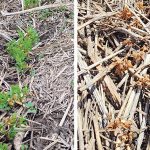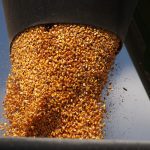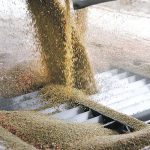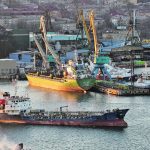Over the past 150 years, plant breeders have kept meticulous records of successes and failures. But with millions of data points over that length of time, it’s been a gargantuan task to optimize the information and increase the number of commercially viable fall-seeded crops.
 Crop Management
Crop Management

Winter lentil survival put to test
SuperCool winter lentils were put to the test this winter, with three of four sites recording total kill; especially disappointing because this was supposed to be a seed increase year. It is disappointing, but not surprising. The Winter Crop Survival Model predicted earlier that sites at Saskatoon, Riceton and Melita would not recover from the […] Read more

Dow signs supply agreement for bio-plastic materials
Dow aims to reduce its fossil fuel sourcing for production and subsequent greenhouse gas emissions by using bio-plastic made from agricultural residues, the company said.

Brazil’s bin-busting corn crop poised to drive down prices
This will be a momentous year in the corn market, says analyst Todd Hultman. Brazil is poised to export 53 million tonnes of the crop in 2022-23, compared to 45 million tonnes for the United States. “They are easily passing us on the export total, and that’s the first time in history we have seen […] Read more

U.S. corn producers could face hot, dry summer
Arlan Suderman, chief commodities economist with StoneX, said the models could be wrong, but any time there is consensus like that among two major forecasters it is unwise to bet against them.

‘Verdict is still out’ on lentil prices this season
Marlene Boersch, managing partner with Mercantile Consulting Ventures, said she would be reluctant to pencil in anything other than average yields for Canada, because it is far too early to forecast a bumper crop.

Analysts discount stale-dated seeding intentions report
Statistics Canada says it will release report earlier, but usefulness of a survey conducted in December is still questioned
The results of the December survey were released April 26, causing many market analysts to question the validity of the stale-dated findings. Chuck Penner, analyst with LeftField Commodity Research, said releasing the report in February would make it timelier, but no more useful.
New fungicide for lentils, peas and chickpeas
"This solution was developed specifically for this market, at BASF research farms, and has proven performance on major pulse diseases regardless of a pathogen's resistance status," said Sylvain Mialon, brand manager, fungicides, cereals & pulses at BASF.

Russia remains dominant in fertilizer market
Many believe the world placed sanctions or blockades on Russian fertilizer, but an industry observer says that’s a myth
Some individual companies decided not to do business with Russian fertilizer manufacturers because they were concerned about vessel availability, rising insurance costs, financing issues and soaring Black Sea freight rates. But they soon overcame those obstacles and Russian fertilizer started flowing to markets around the world.
Credit agency monitors grain shipments
In a commentary released May 17, DBRS Morningstar said it didn't believe the current fires would disrupt movement too much.



 Crop Management
Crop Management


